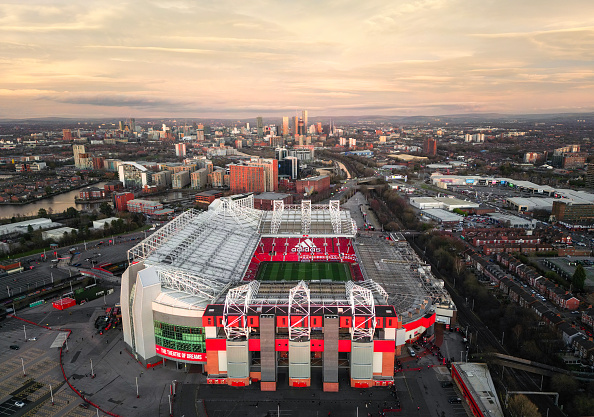The gap between the football brand behemoths and the rest is likely to grow

The bidders for football club Manchester United are now in a virtual data room, filling their spreadsheets and compiling their questions. The job of the Glazer family’s investment banking advisors, Raine Group, is now to find ways to squeeze every possible dollar out of this football asset. One trick of the bankers’ trade is to identify possible sources of profit that have so far been unidentified or underexploited. In short, to sell the dream, and so maximise the tension in the bidding process.
To that end, a study published last week by CLV Group couldn’t have been more timely. Its third Fan Relationship Index report is based on a survey of football supporters from around the globe and concludes that leading clubs are significantly underpowered when it comes to engaging with remote fans. Streaming services, virtual matchday experiences in the metaverse and digital memberships or fan tokens all have the potential to boost income, and with that both profits and club valuations.
Missed football income
CLV claims that United are currently missing out on £87m of annual income from such products, each of which could have particularly strong appeal to overseas fans who may never have the opportunity – or perhaps even the inclination – to set foot inside Old Trafford. It is fair to assume that the economies of scale are such that, when fully up to speed, these offerings would all generate high margins – perhaps 50 per cent or more. Stick the resulting profit on a punchy valuation multiple (that’s the job of the dream-selling bankers) and these alone could add $1bn (£829m) or more to the takeover price for the club.
Any analysis based on survey data in any industry needs to be dialled back. It’s one thing to say you’d pay for exclusive access to training ground video clips, it’s another entirely to hand over your credit card details and subscribe. But the basic thrust of CLV’s work is compelling. As I’ve argued here often, the major US sports franchises are far ahead of football in monetising fandom. Even American owners of Premier League clubs – including the Glazers – have been shy in going all in with the commercial playbooks they’ve honed back home.
This also emphasises the size of the prize available to European football from the swelling population of fans based in the United States. Just under half of the incremental revenue opportunity open to United is deemed by CLV to be in America. Partnerships with NFL and NBA teams could be a way for clubs to accelerate awareness and tap into new supporters there who are more comfortable with paying for access and experiences than their counterparts living round the corner from the team they follow.
Where a few weeks ago it seemed as though three of the ‘big six’ Premier League clubs might be on the blocks simultaneously, Liverpool’s American owners now appear focused on raising fresh investment rather than selling, and tales of Middle Eastern interest in Tottenham Hotspur have waned – at least at the moment.
If the test of a club’s global appeal is taxi driver conversations in remote countries, Liverpool pass but Spurs fail. CLV calculates the latter’s US opportunity at just £8m a year, one fifth of United’s. If true – and Spurs chairman Daniel Levy would doubtless be determined to prove it wrong – then this is just one more indication that the gap between the football brand behemoths and the rest is likely to grow ever wider as the sport really gets to grips with the potential of Web 3.0.
Tasteless egg and bacon
I’ve only been to the cricket Varsity Match once, in the late 1980s. My one memory is an England rugby international holding court outside the Tavern bar at Lord’s with a tottering tower of empty pint glasses. In rugby’s amateur era he was clearly a player in his own mind, although maybe not a gentleman.
The current ructions within the MCC about the future of the Varsity Match as well as the Eton vs Harrow game get ever more toxic. A survey of members of the club that owns Lord’s saw traditionalists defeat the modernisers who want to replace the annual Oxford v Cambridge and elite schools’ fixtures with finals of competitions open to a broader range of students and school kids.
So far, so unsurprising given the demographic of the MCC’s membership. What though must the ECB think, very publicly committed as it is to its equality, diversity and inclusivity agenda, and regular user of Lord’s as the showcase ground for internationals and finals? One long-standing, exasperated MCC member on the side of the reformers contacted me last week wondering whether this was a club he could any longer admit to being a part of. Might the ECB itself contemplate the threat of reducing its use of Lord’s to create pressure for change?
This committee’s solution? No further vote for 10 years. The ECB might want to think more in terms of weeks for the ‘right’ resolution.
How far on Google Maps
Headhunters are literally searching widely for the next chair of Yorkshire Cricket. Domicile is no issue. The brief for arguably the most difficult job in British sport talks of a commitment of a “minimum of 24 days per year, with optional match day attendance.” No way will the next chair get away with optional cricket watching – or only 24 days of the core stuff. They don’t need to reside in Yorkshire, but they’d better be able to get to Headingley easily and often to have any chance of succeeding in healing the deep wounds in the county.
Ed Warner is chair of GB Wheelchair Rugby and writes at sportinc.substack.com
